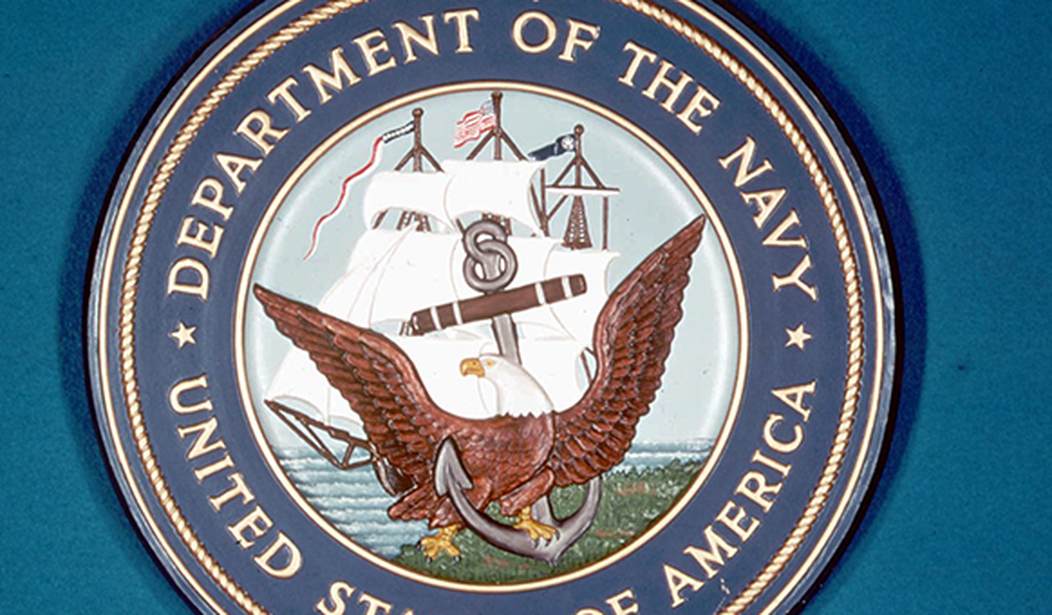This week the Pentagon acknowledged that the coronavirus pandemic -- which President Donald Trump has correctly called a plague -- has affected U.S. military operations.
The disease has definitely reduced the combat effectiveness of the U.S. Navy aircraft carrier USS Theodore Roosevelt. The virus threatens the lives of the warship's skilled personnel. Given the training and experience required to successfully operate an aircraft carrier for peacetime demands, much less combat, it would take a decade or more to replace the nuclear-powered behemoth's sailors, pilots and technicians.
Thank God we're not in a shooting war -- hot war or kinetic war in the jargon. The admirals know that in the interest of long-term security, the carrier must defeat the disease for the next few weeks. Social distancing and time anchored in the ship sick bay slow operations -- hence the reduction in what the military calls "tempo." Even if the ship remains at sea, its capabilities are diminished. According to a recent report, the carrier is quarantined in Guam for "an indefinite period."
Would that adversaries suffering from the COVID-19/Wuhan virus focus on healing themselves during the pandemic.
Alas, that is not the nature of war, or "gray-zone war" as waged by communist China. The COVID-19/Wuhan plague began in the city of Wuhan, China (Hubei province). Despite Beijing's propaganda campaign, that is a fact.
On April 6, the U.S. government warned China to resist the temptation to exploit global focus on the "Chinese virus" for geopolitical gain in the South China Sea, or SCS.
Recommended
The precipitating event was a claim by Vietnam that a Chinese coast guard vessel sank a Vietnamese trawler in the SCS. The deep-sixed fishing boat is the headline but not the whole story. The U.S. State Department reports that since January, Beijing has expanded so-called "research stations" and the deployment of military aircraft in the contested million-plus-square-mile maritime zone that extends from China's coast south to Singapore and the Strait of Malacca.
AFP quoted State Department spokeswoman Morgan Ortagus as saying, "This incident is the latest in a long string of PRC actions to assert unlawful maritime claims and disadvantage its Southeast Asian neighbors in the South China Sea."
Long string indeed. Clashes in the SCS over islands and fishing rights have occurred since the 1970s.
However, aggressive Chinese territorial expansion in the area began in the early 1990s. Beijing diplomatically framed its territory-expansion policy as bilateral struggles over islets and reefs between China and its Southeast Asian neighbors.
But this fight isn't a local squabble. The SCS maritime zone has global import. An estimated $5 trillion per year in trade (goods and resources) transits the SCS.
In 2016, The Hague international arbitration tribunal supported the Philippines' accusation that China had intruded on Filipino territory by seizing sea features and islets and conducting illegal fishing operations. China ignored the court verdict. The tribunal relied heavily on the U.N. Convention on the Law of the Sea treaty, which China had signed.
Beijing flouted international law and so far has gotten away with it.
Call this warfare what it is: Chinese "gray-zone warfare" with the goal of extending Beijing's control in the area without provoking a hot war with America. China invades the SCS with construction barges and drilling rigs, which build artificial islands. Swarms of fishing boats and Chinese Coast Guard ships follow the barges. Beijing then employs propaganda, crime, covert influence operations, political agitators and old-fashioned bribery to secure its gains.
China's communist dictatorship employs all of these techniques.
Now it exploits a plague it spawned to gain geopolitical advantage in the South China Sea.
To find out more about Austin Bay and read features by other Creators writers and cartoonists, visit the Creators Syndicate webpage at www.creators.com.
























Join the conversation as a VIP Member